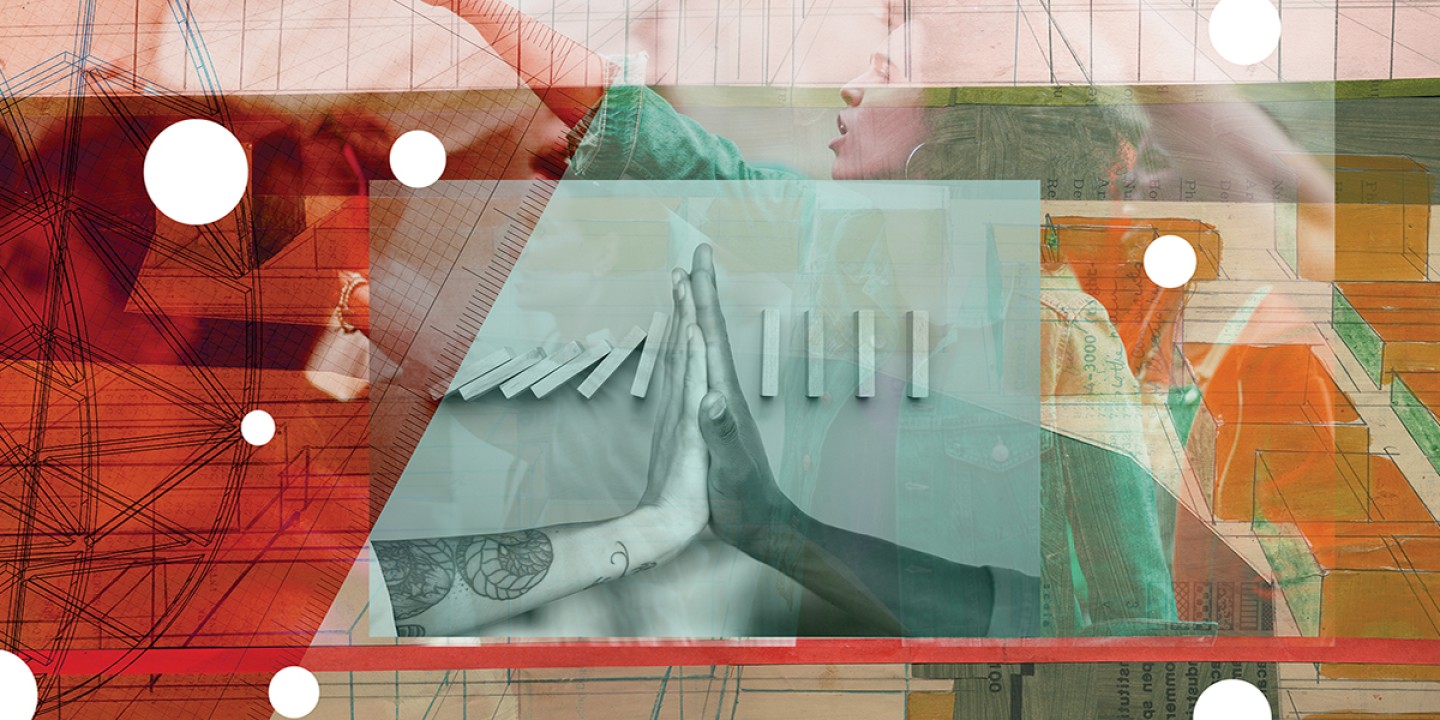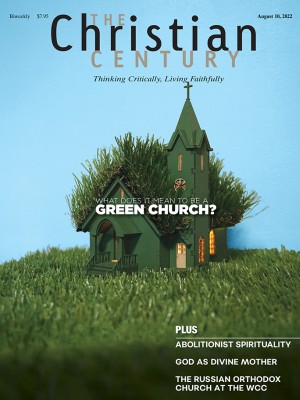
A few winters ago, a local high school booster club invited me to offer the keynote address at a celebration for their football team. The young men had managed to make history as a ball club, but only a couple months prior, the football stadium had morphed into a firing range, inflicting wounds that will not soon heal. In a mass shooting, a ten-year-old boy lost his life. His murder froze the hopes and comforts of the county and halted a stellar football season.
I arrived at the country club for the annual celebration of players and parents keenly aware of the tension. Undoubtedly, this was a moment of pride and possibility. But so many of these Black and Brown boys lived under the unchecked threat of gun violence—in addition to the daily trials of food scarcity and opportunity apartheid. I gave a 20-minute speech, using less than a minute of it to say, “You are the embodied hope our communities need. This hope outlives last night’s growl of a stomach due to a missed meal or tomorrow’s endurance of a teacher’s inability to understand the unrelenting pressures of living Black or Latinx in America.”
Read our latest issue or browse back issues.
After I returned to the head table, a few people affirmed the speech as appropriate for the occasion and audience. However, as I reached for the salad dressing, a White chemistry teacher glared at me.
“Are you sure you’re a pastor?” he inquired. “I’m offended you told these boys White teachers don’t understand them. Talking about race only makes race an issue.”
“If we avoid talking about race,” I responded, “we actually deny these young men’s experiences and allow racism to fester.”
He then suggested that my invocation of racism was the only racism these boys experienced within the school system. In his opinion, talking about racism cannot end racism—only God can. He myopically assumed that my identity as a pastor meant I shared his understanding of racism as just another sin, a spiritual condition. Jesus died because sin will never go away; therefore, racism will never go away. With such flagrant pessimism and resignation, it is no wonder he held that people only make our racial situation worse by talking about it.
The notion that racism will never end is just one example of what I call White noise: racist ideas, speech, silence, and misrepresentations that protect and perpetuate Whiteness. White noise masks racial realities and allows people, regardless of race, to ignore the call to disrupt systemic and individual racism. In this case, it tells us that racism is not solvable and that talking about it, even in the forms of reparative intercession or racial parrhesia (truth telling), only makes it worse. Our imaginations, so infected by our existing conditions, cancel even the possibility of hope that racism has a death date.
Racial pessimism amounts to a spiritual crisis. It feeds the view that racism is an inextricable feature of the fallen human condition and therefore beyond human correction. We tell ourselves it’s God’s work—it’s not my responsibility. As we cower behind the small print of the bargain, Black students continue to receive lesson plans two grades below their level, groups of Latinx children live hunted by ICE, Trumpism dominates politics in many places, and the racial wealth gap sucks families into a quicksand of nihilism.
When White noise threatens to drown out the hope for social transformation and our capacity to achieve it, we must practice instead what I call “the pulse to risk”: we must risk our own power and privilege to broaden our sacred imagination. We must construct a new social order anchored in human dignity, equality, and sustainability. We must practice an abolitionist spirituality through behaviors that feed countercultural truths and unselfish interactions with those perceived as disposable.
White people must dare to discuss what they are willing to sacrifice—what power and privilege they are willing to give up—in service of sustaining the stated promise of America and living into its founding creeds. Black men must consider what we must give up to advance justice for Black women and the Black queer community. Black middle-class communities must risk their class privilege for poor Black folks. The same holds true for Latinx communities and their various intersecting shades of social life.
The pulse to risk power and privilege is holy, because it puts us in touch with a fuller meaning of humanity. This includes risking our social privileges, including the protections people think they receive in return for their inaction or pretensions to color blindness. For Christians, as Peter Gomes proposed in The Scandalous Gospel of Jesus, “the question should not be ‘What would Jesus do?’ but rather, more dangerously, ‘What would Jesus have me do?’ The onus is on us.”
Jesus’ manifesto in Luke 4:18–19 confirms the spirituality of justice, the sacredness of the political done humanely. The chief ruler of the synagogue requests that someone from the congregation read a passage from Isaiah. Jesus stands to read: “The Spirit of the Lord is upon me, because he has anointed me to bring good news to the poor. He has sent me to proclaim release to the captives and recovery of sight to the blind, to let the oppressed go free, to proclaim the year of the Lord’s favor.” He then uses this passage as the basis for his first sermon, foregrounding an agenda designed to impact the lives of the unprotected.
What is radical to us today appeared to pop off the scroll and flow off Jesus’ tongue as normal, a religious-political mainstay. Good news to the poor is anti-poverty economic policies. Setting the captive free is criminal justice reform. Recovery of sight to the blind is guaranteeing affordable health care. Setting the oppressed free is emancipation. Proclaiming the year of the Lord’s favor is reparation.
The witness of Jesus the carpenter—steeped in his own formation as a Hebrew devotee to the God of the exodus—compels us to act on behalf of and in solidarity with disinherited, marginalized people. In our time, we need a new exodus—from Whiteness, patriarchy, queer phobias, and poverty, to enumerate only a few. The quiet sympathies of good people will not initiate the emergence of a true public good for all.
Quiet sympathy—disembodied, non-proximal feelings of concern—is a costless response to racism. Sometimes sympathy even unwittingly cooperates with injustice, leaving a significant body count in its wake. Justice, racial or otherwise, is not a feeling but a doing. The spiritual without the political is passive and unproductive. The political without the spiritual is predatory and loveless. Justice is where the spiritual and the political rendezvous.
What does this abolitionist spirituality look like in action? It looks like turning opportunities aside in order to benefit historically underprivileged persons. Or opting out of inclusion when others are excluded or underrepresented, or disassociating from certain networks and persons when our alliances threaten the dignity of others. Some disruptive practices that draw inspiration from abolitionist spirituality include joining nonviolent direct action, advocating for policy change, calling for curricula redevelopment in schools, examining our spheres of influence, educating decision makers according to a liberative vision, and bringing our antiracism to our decision-making roles.
In this way we not only give up racial pessimism, we nurture a sacred intolerance of racism—along with all other forms of oppression—and treat the needs of others as holy.
Abolitionist spirituality also invites us to repair the material and psychic harms inflicted on unprotected racial communities, acknowledging the psychological violence of what I call plantation religion—the use of dogma, ritual, and doctrine to protect White power, a practice still at work in much of Christianity today. We can be careful of the stories we consume and work to create a counternarrative for racial stereotypes, supplanting the centuries-old messages so normalized by media, churches, and curricula. Oppressed people the world over deserve safe space—hush harbors in the middle of metropolises of inequality and dread. We work to heal their psychic wounds when we publicly and privately share racial truths unstained by the ugly history we love to forget, when we invest in safe and brave spaces created and operated by unprotected people.
Finally, we must work to give up any attachment to the way things are. After 246 years of forced labor and a soul-shattering relationship with Whiteness, mere freedom for the enslaved was never going to be enough. Abolition requires creative, constructive institutions and new economic arrangements. The abolitionist tradition seeks to broaden democracy and expand the political window of equity and human flourishing. Without a proactive posture toward human becoming, we fail to see big enough ways to give people what they need before they misuse or distort their humanity.
So many people live trapped in place due to what Willie James Jennings calls “a diseased social imagination,” which distorts our perceptions of race and disfigures the lived outcomes of non-White people. The chattel imagination crowns Whiteness as the ideal and perceives Black people as inherently deserving of control, isolation, punishment, inhumanity, and exclusion. The chattel imagination normalizes the ways Black communities endure the unrelenting blows dealt by mass inequities in schools, corporate offices, health companies, and the legal system. Abolitionist spirituality invites us to renew our imagination, language, and actions, believing a sustainable future exists beyond the necessary destruction of the evil we’ve always known. Just because there is no exact, detailed, vivid blueprint for the future does not mean the insidious evils of structural dehumanization and disinheritance should not be dismantled immediately.
Abolition calls for the end of private and public prisons that irrecoverably extract resources and people out of Black and Brown residential communities. Abolition demands teaching that advances the opportunities of Black and Latinx students as emerging voters and taxpayers. It speaks up for a single-payer health-care system that addresses the disparities that contribute to lower Black and Latinx life expectancies. It communicates a need for a federal job guarantee that requires the US government to create and sustain high-wage employment for everyone who wants a job while honoring the dignity of work and workers.
Abolitionist spirituality urges us to self-sacrifice. We should sacrifice our power and privilege so consistently, intentionally, and freely that it comes to feel like not a sacrifice but a sacrament. Our faith expects and welcomes opposition as a pathway to societal re-creation, an occasion to unlock the power of human resilience sparked by the divinity in us—our imago Dei. This is true even when the opposition surfaces from within us. Abolitionist spirituality funds our risks, urging us to do the counterintuitive and self-sacrificial. The succor of our spirituality correlates to the amplitude of our resistance to the status quo.
This article was adapted from Silencing White Noise: Six Practices to Overcome Our Inaction on Race, © 2022. Used by permission of Brazos Press. A version of the article appears in the print edition under the title “Abolitionist spirituality.”






